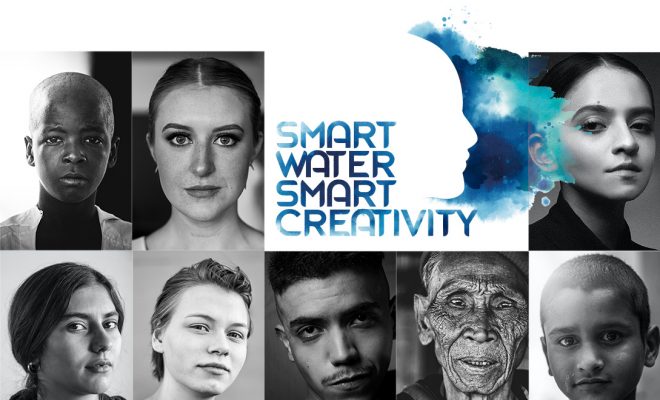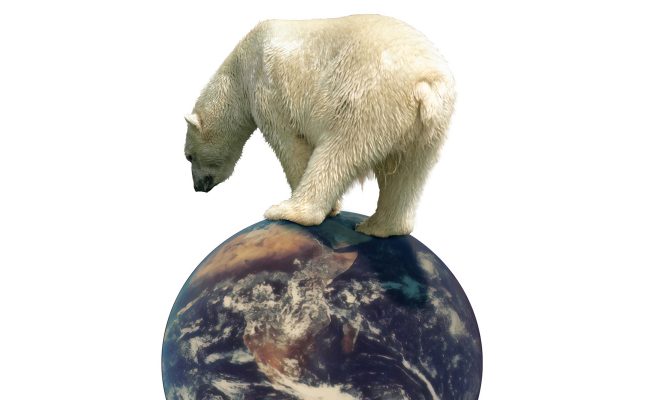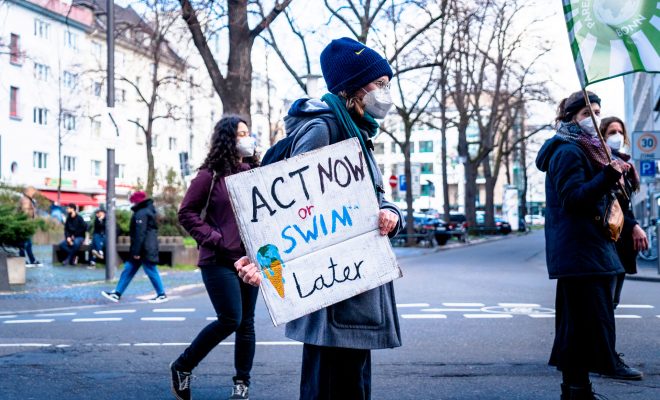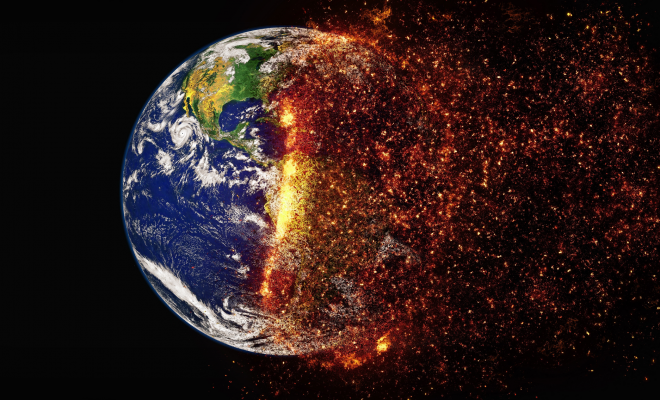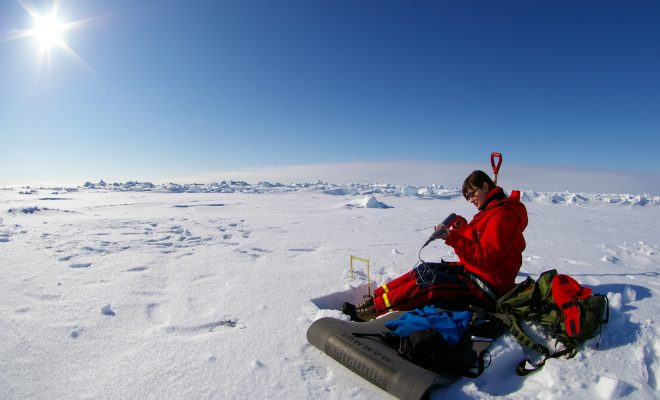
Classic climate denialism —denying climate change and its anthropogenic causes—is in recession. In recent years, the avalanche of sensitive evidence has reached virtually the entire world’s population, which has felt first-hand the warnings of scientific reports. Fewer and fewer people deny the existence of climate change and that it is due to human activity.
The latest decisive evidence, which is finally convincing most of the reluctant, is the conclusion of a detailed media study by Cornell University, published on October 19th: 99.9% of the 88,125 peer-reviewed scientific articles (evaluated by experts who are not part of the editorial) agree that climate change is mainly caused by humans. This means that those who practiced the “fallacy of incomplete evidence” (the act of pointing to individual cases or data that seem to confirm a particular position while ignoring a significant portion of related and similar cases or data that may contradict that position) have only 0.1% of the studies to confirm the opposite.

The mobilization encouraged by water scarcity shows that every effort has the power to make effective changes. The drops of water you save do count. © Nathan Dumlao-unsplash
A stronghold of classic denialism
However, despite its international decline, classic denialism continues to be alive in the gas-emitting powers, and this is worrying. In the United States, where resistance to admitting the need to reduce the burning of organic fuels is most significant, pressure from the petrochemical and coal lobby is openly manifest. One of its latest actions was the dissemination on social media, in the weeks leading up to COP26 in Glasgow, of a 2016 Pew Research Center study showing that “only” 27% of U.S. adults over 30 believe that the cause of global warming is the burning of fuels promoted by humans.
The sounding board of the U.S. Congress also bears denial. According to a Center for American Progress report published last March, 30 U.S. senators and 109 representatives still do not recognize the scientific evidence of climate change caused by human activity.
Classic denialism insists on accusing the 2030 Agenda of ideologization in a strategy to prove that the SDGs respond to political manipulation, ignoring the fact that they are the result of a Resolution approved by the UN General Assembly on September 25th, 2015. This unanimity of the causes of the climate crisis has been endorsed in the successive Conferences of the Parties (COP), despite the failure to reach solid agreements on gas reduction.
“You cannot do anything.”
Action by the governments of the main gas-emitting countries is essential to avoid exceeding 1.5ºC of global warming and prevent climate change from getting out of hand. For this reason, the lack of real and forceful commitments urgently demanded by the IPCC has caused discouragement and alarm among most scientists and public opinion. After COP26 in Glasgow, the sense of failure of the last two conferences since COP21 in Paris, when the evidence of climate change and its dangers for humanity made the headlines, has not been overcome.
This lack of convincing agreements is causing growing symptoms of social despair, which the instigators of denialism are exploiting to change the object of denial. They argue that climate change exists, but the solutions proposed are not possible as they will destroy the economy. They advocate that it’s best not to worry too much: “It’s not as serious, scientists exaggerate.” Such reasoning leads to a revaluation of blind confidence in technology, proposing that it will become the critical tool that will allow us to adapt. And they usually finish with this perverse sentence: “You cannot do anything, don’t let them hold you responsible for something you are not guilty of and your action is so small that it won’t do any good.”
This opinion, recently spread on social media by some YouTubers, Instagrammers,and other influencers takes advantage of unresolved vital issues, which generate endless political debate, to create more confusion and thus dwarf individual judgment and action. The point is to convey that it will be challenging to agree and that there is no point in lobbying governments, companies, and institutions. Whose fault is it? Who has a more negative impact on climate, an American or a Chinese? Who should do more to solve this? These are all questions that remain unsolved and embitter public debates.

The causes of these crises in rich countries are visible to all: empty reservoirs and polluted or missing aquifers. © Stephen Mitchell
When water is scarce, individual action is the basis for solutions
Water crises, which are inherent to the current climate crisis, provide evidence that is impossible to deny and, best of all, corroborate that solutions are possible and are based on the action of each one of us. Two examples are the urban domestic supply crises and the water shortage for agriculture.
Although cities account for the smallest share of the world’s water supply (around 10% on average), their political and social influence and technological leadership make them unavoidable references in the planet’s environmental future. The media resonance of a domestic water supply crisis is even greater than that of a heatwave or a drought. If a large city cuts off water to its inhabitants, the news travels worldwide and attracts more attention than a flood in Africa.
The causes of these crises in rich countries are visible to all: empty reservoirs and polluted or missing aquifers are evidence seen by the inhabitants of Saõ Paulo, Lima, Cape Town, Caracas, Bangalore, Morelia, and Mexico City, to name a few of the most notorious in the last few years. The anthropogenic causes are undeniable, “someone” has used that water, and if reservoirs do not fill up as they used to, it is evident that climate is changing.
In these cases, the psychological impact of not having water at home triggers immediate awareness that encourages individual actions, which are usually effective. Campaigns with slogans such as “every drop counts” have achieved radical consumption reductions that have helped significantly to alleviate the problem. The case of the Barcelona metropolitan area is emblematic: after the water crisis of 2008, the people of Barcelona went from an average consumption of 110 liters per person and day to 105 in just a few months and, the following year, this Spanish city registered the lowest water consumption in the entire European Community. This leadership has been maintained jointly with the city of Copenhagen, where awareness-raising campaigns have been carried out. Both capitals currently keep an average consumption of 105 liters per day compared to the European average of 120-150 liters.
Farmers are also on the front line of the impact of climate change, which worsens the results of poor water and land management in many areas worldwide. The lack of rainfall is “uncovering” overexploited aquifers, most of them due to poor land management, inadequate agricultural patterns, and inefficient irrigation systems.
The message “every drop counts” is very effective in areas with the most significant water stress and rural poverty. The projects developed during the last decade in agricultural regions of India have helped more than 90,000 farmers in areas hit by drought and monsoon uncertainty. They have addressed fundamental issues to overcome water crises, and in all of them, success has been based on the participation of all beneficiaries. Both in watershed management and the construction of reservoirs and wells, the goals have been attained through the sum of individual actions.

The message “every drop counts” is very effective in areas with the most significant water stress and rural poverty. © Carlos Garriga/We Are Water Foundation
Likewise, horticulture development through drip irrigation systems, which save up to 75% of the water, which is then used to irrigate new crop areas, enables farmers to make their crops sustainable. The installation of new solar-powered irrigation systems and adequate wells management requires the farmers’ participation. This base will make water available in a country with depleted groundwater reserves by droughts and a seven-fold increase in extraction over the last 50 years.
There is so much you can do
Following COP26 in Glasgow, the French activist Lucile Pinson, winner of the Goldman Environmental Prize in 2020, stated: “Resignation, fueled by the idea that we can’t do anything on our own scale is the main reason why, almost 30 years after first IPCC report, we are still increasing greenhouse gases.” And she referred to a blockage that needs to be removed: “Everyone agrees that we need to change, but not that we can change, and we can.”
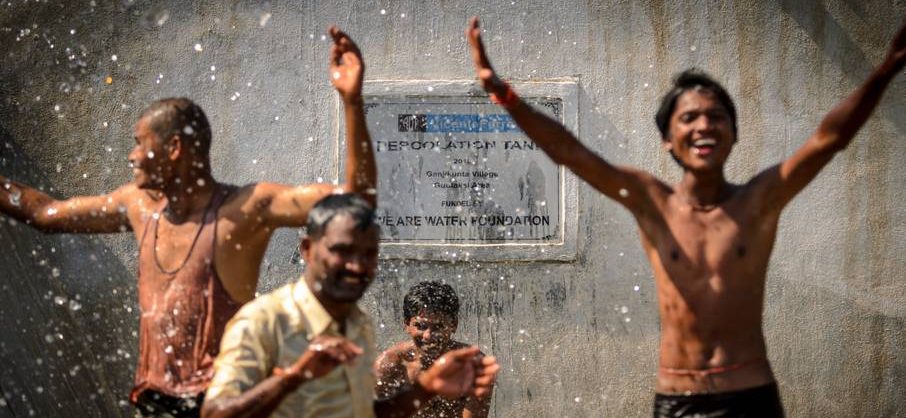
The attainment of the SDGs by involving all the players of human progress, based on the conviction that each of us counts to overcome the challenge we are facing. “There is so much you can do.” © Carlos Garriga/We Are Water Foundation
The Spanish environmentalists and Ph.D. in Biodiversity Andreu Escrivá, one of the most prestigious voices in climate change communication, never tires of insisting: “Every individual change adds up, but only collective change transforms.” Our latest dialogue forum of the Smart Water platform, the Smart (Collective) Creativity, advocates the attainment of the SDGs by involving all the players of human progress, based on the conviction that each of us counts to overcome the challenge we are facing. “There is so much you can do.”



